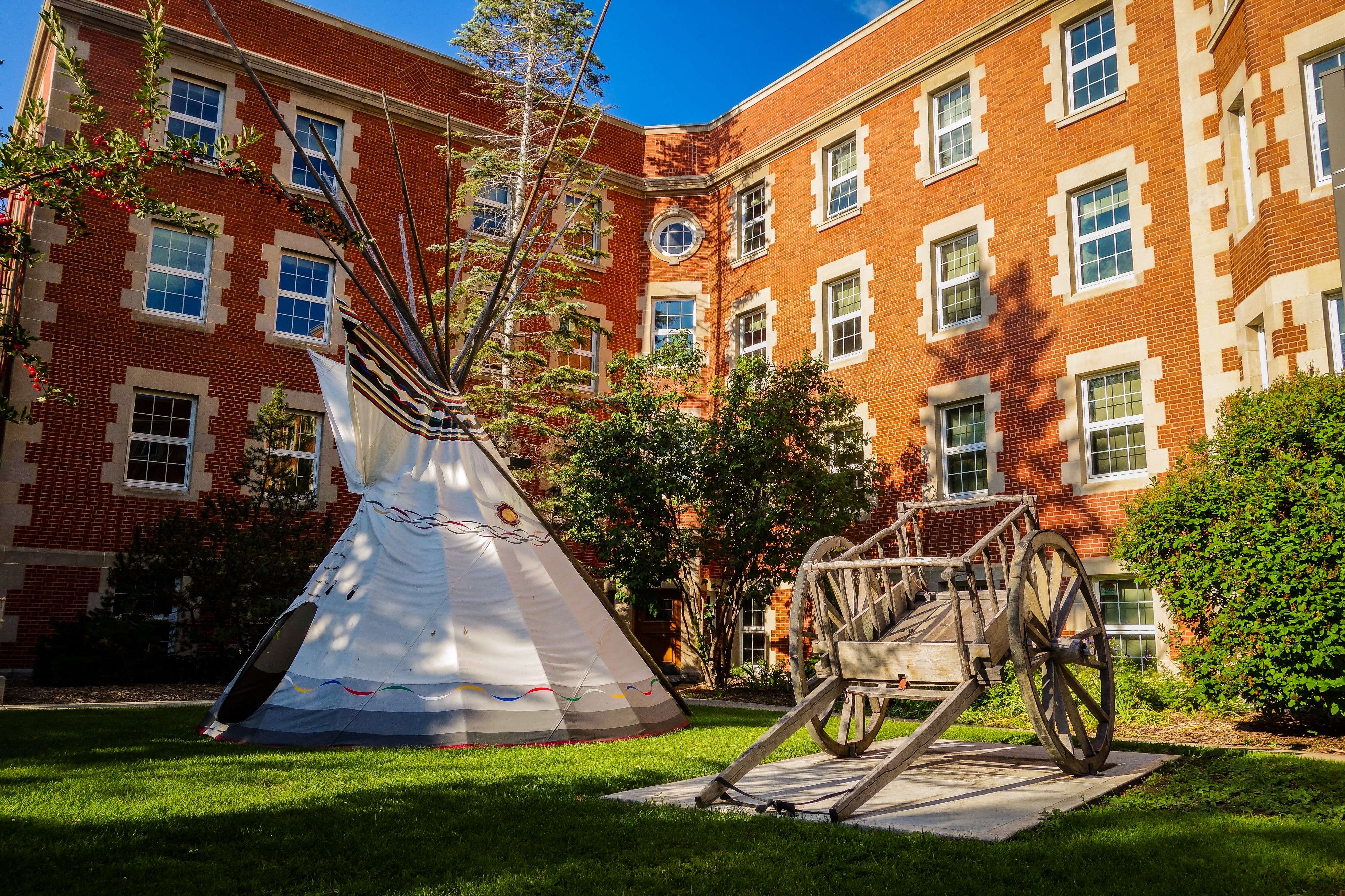
National Indigenous Peoples Day (June 21) may look different this year, as COVID-19 prevents large public social gatherings (though several events are happening online). But the absence of large community celebrations does not dismiss the opportunity to think deeply and learn about Indigenous history: June is National Indigenous History Month. June 2 marked the fifth anniversary of the Truth and Reconciliation Calls to Action. June 3 marked the first anniversary of the publication of the report from the National Inquiry Into Missing and Murdered Indigenous Women and Girls. And the recent protests throughout North America are reminders of racial inequalities that continue to exist.
"Those reports are not a moment in time, they are part of an ongoing commitment to work towards Truth and Reconciliation," says Kisha Supernant, co-lead of the Situated Knowledges: Indigenous Peoples and Place (SKIPP) signature area. "Now is a good time to reflect on the Calls to Action and look at what activities we [at the University of Alberta] have engaged in or could engage in."
Two free, important resources that can be used to learn about Indigenous histories are accessible virtually: the University of Alberta's Indigenous Canada Massive Open Online Course (MOOC) and SKIPP's weekly Indigenous-Engaged Research and Scholarship Virtual Colloquium Series.
"I know some friends who are taking the MOOC for the first time so they can learn more," Kisha says. "I think it is a wonderful resource that is important and relevant. I think it is important for people to continue to think deeply about what it means to be a Treaty person and what it means to be on these lands."
Florence Glanfield, Vice-Provost (Indigenous Programming & Research), adds that while engaging in this learning it is also important to consider the relationship between the histories of Indigenous and Black people in Canada. "Those histories are distinct but intertwined in interesting and important ways. They are both connected to systems of settler-colonialism and racism that Canada is based on. I was reminded of this when an Elder sent medicines with me the first time that I traveled to East Africa. My Elder reminded me that we are related to one another across these diverse lands. She asked that I make an offering to remember the histories of First Peoples, across Mother Earth, and the ways in which those histories were interrupted by colonial systems and to celebrate, and give thanks for our relations in other lands."
"One of the narratives I'd like to see emerge is recognizing those relations," Kisha says. "Things like policing impact both of these communities disproportionately. When Black academics were sharing their experiences on Twitter using #BlackInTheIvory, there were elements that those of us who are Indigenous recognized, though there are different experiences and levels of racism."
Participants in the MOOC, colloquium, or any other educational resources should come away with not only an understanding of Indigenous histories, but a commitment and understanding of how to do more and be a supportive ally. "In these times, it is not just doing the learning, but incorporating that learning to lead you to change your behaviour, to stand up," Kisha says. "If you hear something racialized or inappropriate, call it out. Learning should not merely be this passive thing that we do. Resources should lead toward change. It's not just about saying a territorial acknowledgement, it's about deeply thinking about what that means."
"This is about walking the talk," Florence says. "Learning should be more than a cognitive thing. We need to start seeing some actions and lessons put into practice at the university."
As a professor of mathematics education, Florence is familiar with the attitude that there is no place for culture in an "objective" discipline. "When I was first studying mathematics there was an attitude that, 'math is objective so it doesn't matter who is doing the work'," Florence says. "But that isn't true. STEM disciplines are not immune to racism. There's a need for this anti-racism work to cross disciplinary structures and address the differences that exist. I was amazed to learn recently of two blog posts by professional organizations in mathematics and physics taking this up. It's a starting point, and hopefully it leads to action and creating more positive environments for people who want to make change around structural practices in the academy, which I think is pretty powerful."
While National Indigenous Peoples Day is a good starting point for engaging in meaningful learning and action, it should not restrict the ongoing work that needs to be done.
"There is so much complexity right now, we're at the intersection of the pandemic, climate change, anniversaries of the two reports, Black Lives Matter protests, and anti-racism," Florence says. "It takes a commitment by every single human being to bring about change. Each of us must acknowledge that systemic racism does exist and that we must work individually and collectively for just workplaces, systems, and ultimately, society."
Suggested National Indigenous History Month Resources:
- Shifting Geographies: Virtual Reality Inuit Art Exhibition and Scavenger Hunt
- The Gabriel Dumont Institute National Indigenous Peoples Day Online Celebration
- Gabriel Dumont Institute Virtual Museum Resources
- Celebrating Indigenous Peoples in Canada: Learning and Activity Guide
- Back to Batoche Virtual Museum